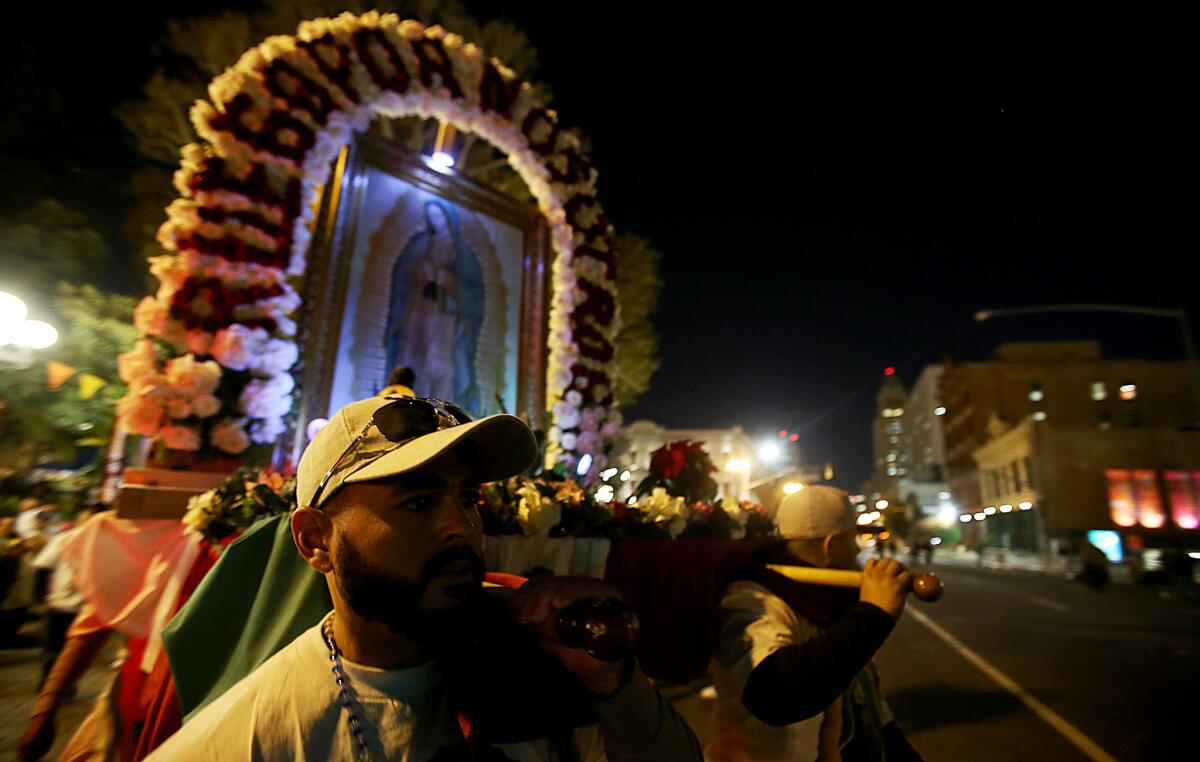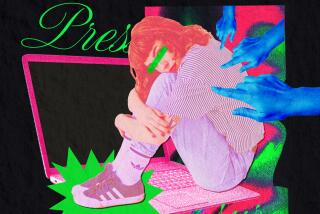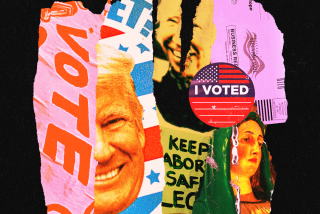Percentage of Catholic Latinos in U.S. down 12%, Pew study finds

Buffeted by a rise in converts to other forms of Christianity as well as a falling away from religion entirely, the share of Latino Catholics in the United States continues to decline, a study released Wednesday by the Pew Research Center found.
The study reconfirmed that the vast majority of Latinos in the U.S. remain Catholic, but it also showed how that stronghold has weakened. Fifty-five percent of the nation’s Latino adults self-identify as Catholic, a drop of 12 percentage points over a three-year period that ended in the summer of 2013, according to Pew.
The decline has been sparked in part by shifts underway in Latin America — where Protestant, evangelical forms of Christianity have made significant inroads over the last several decades. In the U.S., increasing numbers of immigrants either converted to an evangelical church before coming here or made the switch once they arrived.
Also contributing to the shrinking share of Latino Catholics is a broader societal trend: People in the U.S. increasingly are referring to themselves as “unaffiliated,” a broad category that includes those who identify as atheists or agnostics or who simply do not believe in a particular form of religion. The number of unaffiliated Latinos has increased from 10% to 18% since a similar study in 2010, according to Pew.
Father Allan Figueroa Deck, a professor of theological studies at Loyola Marymount University, said the study highlights the fact that the Catholic Church faces stiff competition in an expanding marketplace of faith.
“Latino Catholics now live in a world of religious pluralism that is relatively new,” he said. “The Latino church in Latin America was one of monopoly for several centuries. Increased options reflect the reality of today.”
Deck added that the study magnifies an urgent need for the Catholic Church to advance reforms pushed by Pope Francis, who is prodding it to become less hierarchical and more concerned with meeting people’s daily needs.
Former Catholic Latinos often say they left the church because it felt stifling and failed to speak to modern concerns.
Based on a survey of 5,103 Latino adults living in the United States, the study showed that the most dramatic identity shifts are occurring in younger generations.
Among Latinos between 18 and 29 years old, the ranks of the unaffiliated have swelled from 14% to 31% since 2010. Meanwhile, the percentage in that age group who identified as Catholic declined from 60% to 45%. By contrast, among Latinos who are 50 and older, the survey didn’t find a statistically significant change in Catholic affiliation.
Although American Latinos are leaving the Catholic Church in large numbers, they are still a significant share of all Catholics in the U.S., making up one-third of the church.
Both trends are occurring simultaneously because of the steady increase within the U.S. of the Latino population. Pew researchers speculate that a day could come when a majority of U.S. Catholics are Latino, even though most Latinos will not be Catholic.
“The shifts we see in the study show huge implications for American religious life,” said Edwin Hernandez, a research fellow at the University of Notre Dame who focuses on Latinos and religion.
Of particular interest to Hernandez were the survey findings that showed an increasing prominence of conservative Latino evangelicals, a group he said has been “operating under the radar” but could end up having a significant impact on American politics and culture.
More to Read
Sign up for Essential California
The most important California stories and recommendations in your inbox every morning.
You may occasionally receive promotional content from the Los Angeles Times.











